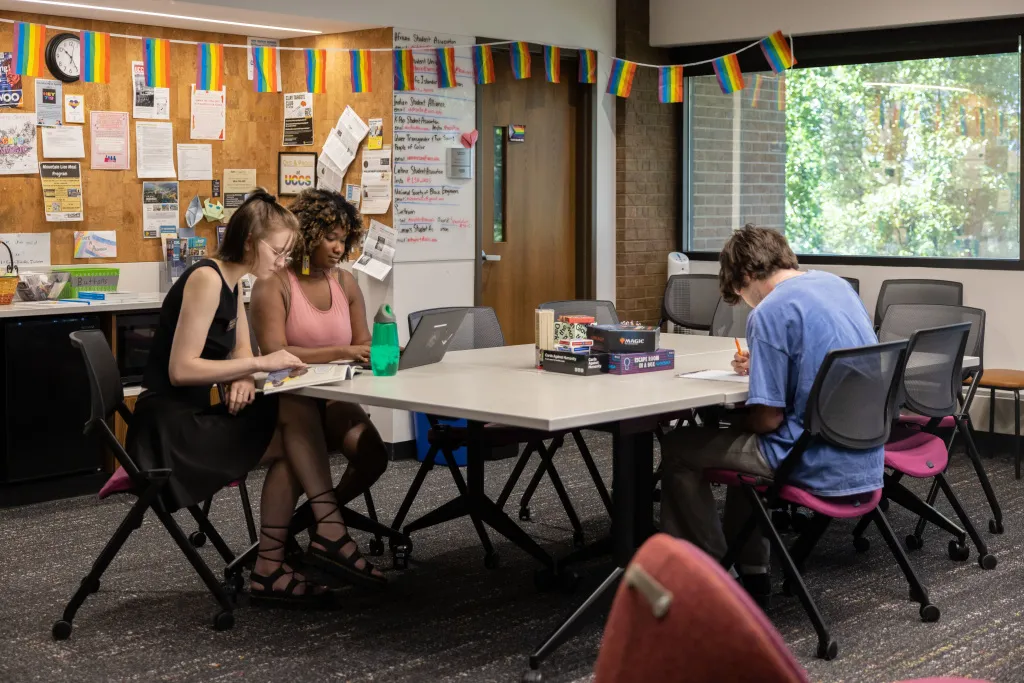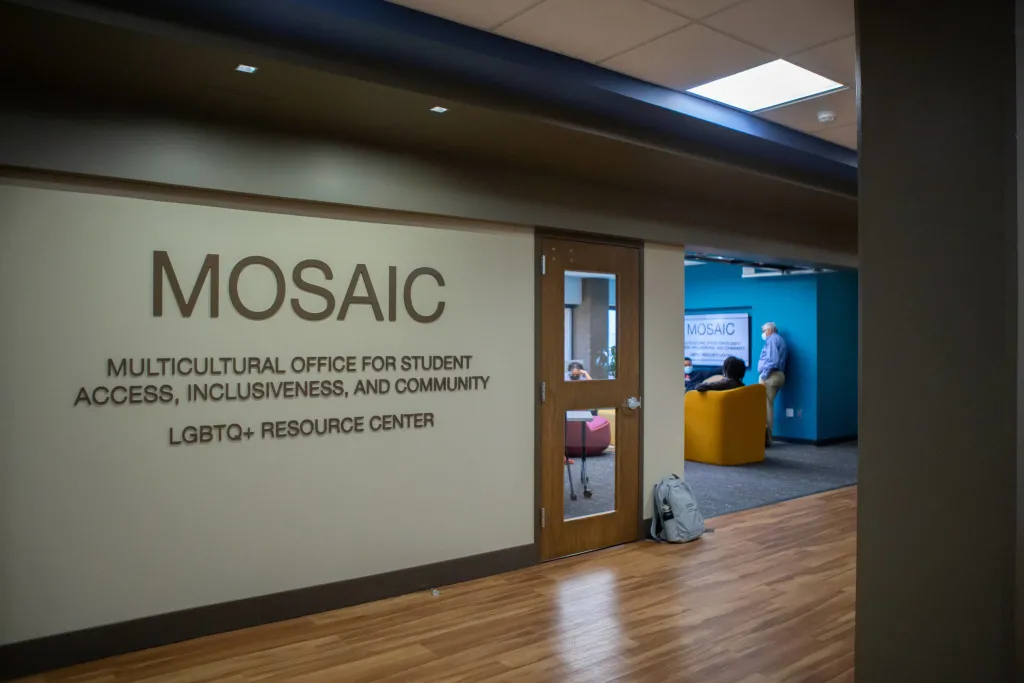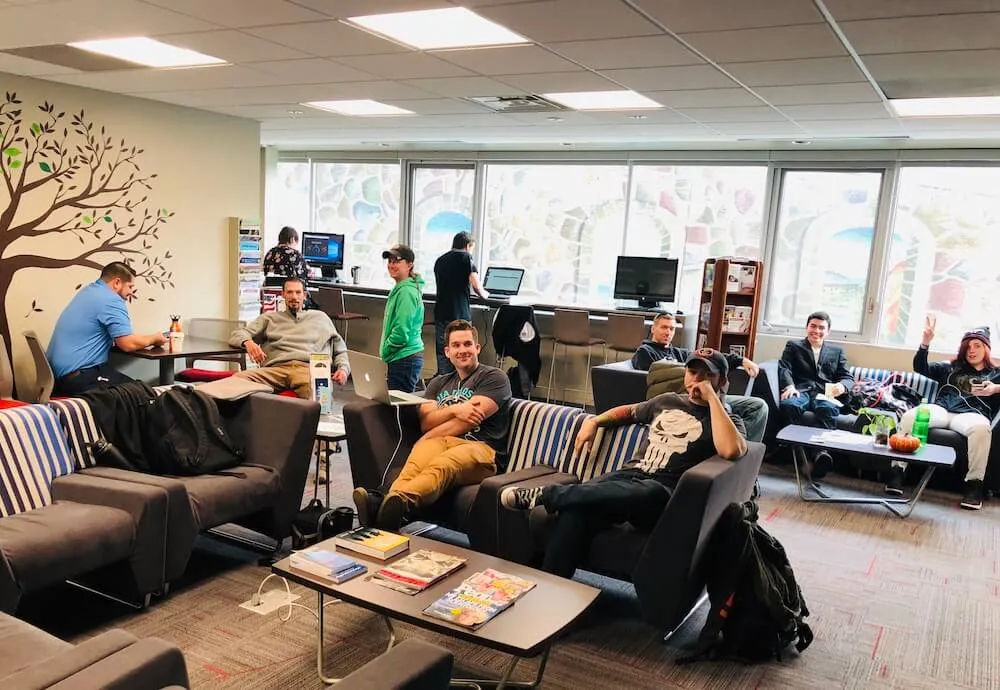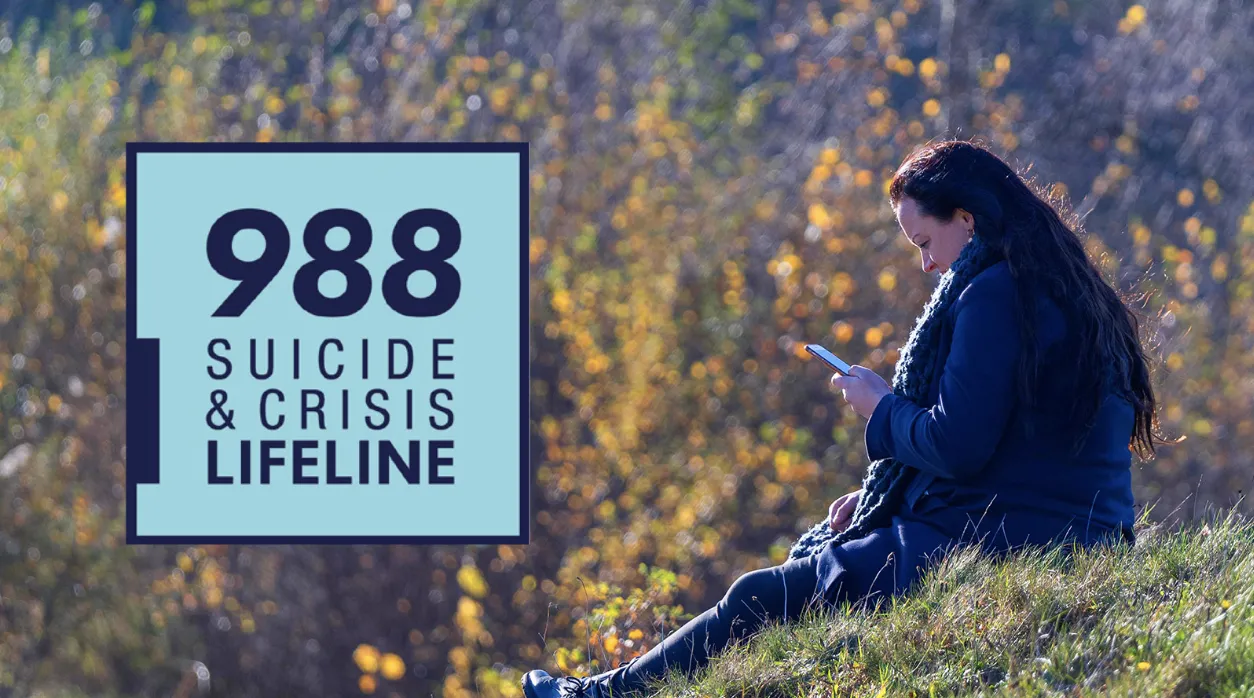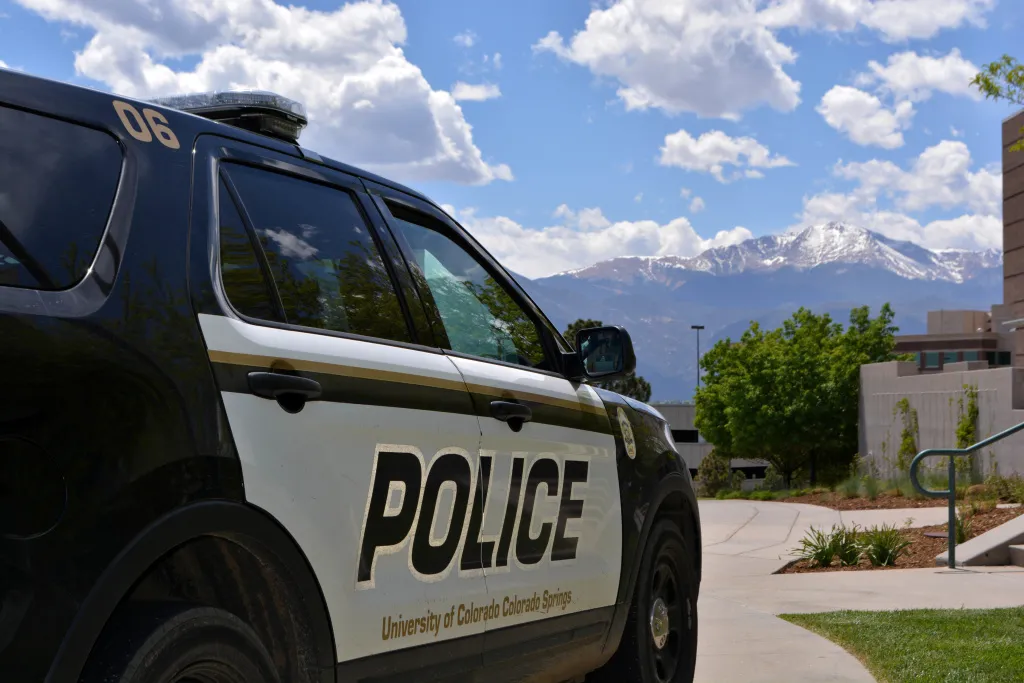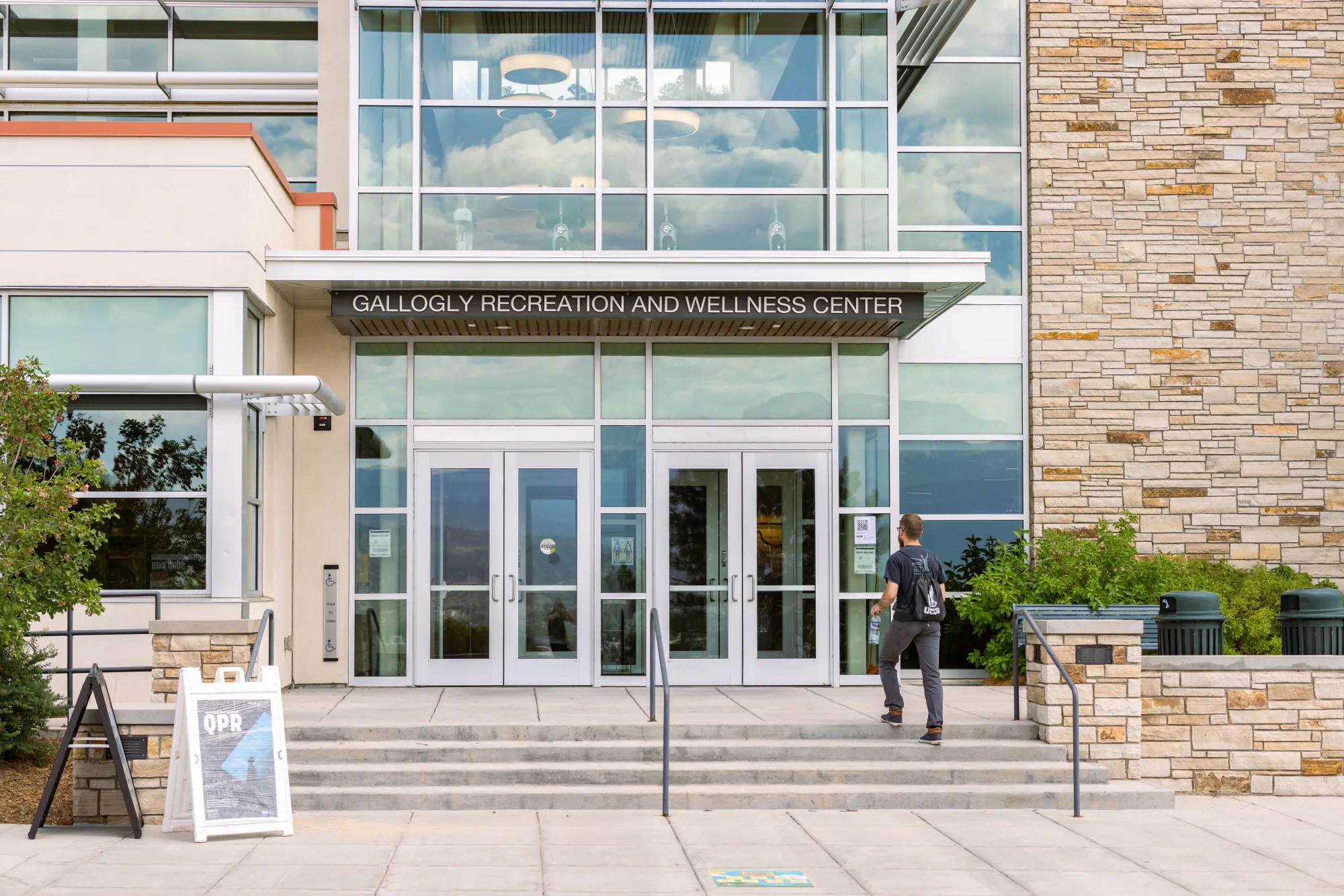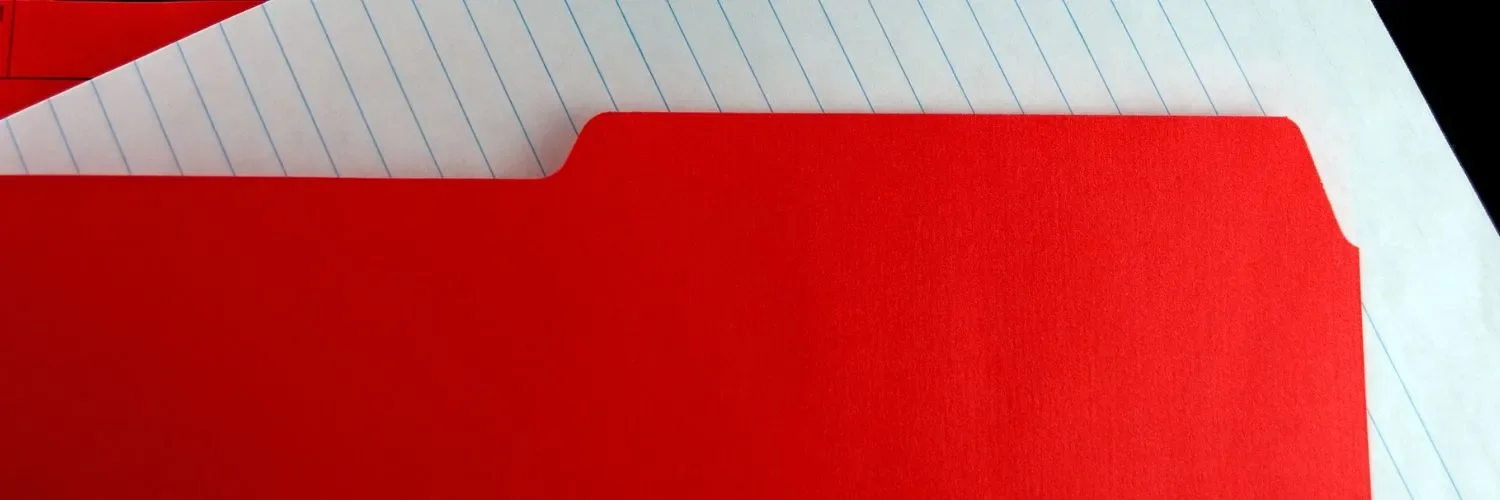
Red Folder
How to Identify & Respond to Students in DistressMessage to Faculty & Staff

When faced with academic and life challenges, students may feel alone, isolated, and even hopeless. These feelings can easily disrupt academic performance and may lead to diminished coping abilities and other serious consequences.
As a faculty or staff member, you may have frequent and prolonged contact and be the first person to notice a student in distress. As fellow members of the UCCS community, it is important that we respond with compassion.
Keep in mind students exhibiting concerning behaviors may be experiencing difficulties in other areas of their lives. Students sometimes feel they can’t share their struggles with family and friends but may be comfortable doing so with faculty or staff voluntarily, or you might notice a concern first.
By checking in about your observation, you may help save a student’s academic career or even their life. Faculty and staff are in a unique position to demonstrate care and compassion for students in distress.
Recognize
The most common referral identifiers are sudden, unexpected, or unexplained.
- Behavioral or emotional changes
- Withdrawal or isolation
- Change in hygiene or appearance
- Excessive or inappropriate anger
- Decline in class attendance
- Erratic thoughts or behavior
- Expressing suicidal statements
- Disclosing housing or financial difficulties
We can further delineate identifiers into common categories:
- Academic
- Physical
- Psychological
- Safety Risks
- Sudden decline in quality of work and grades
- Repeated absences
- Disorganized work
- Multiple requests for extensions
- Overly demanding of faculty or staff’s time and attention
- Erratic content in writings or presentations
- You find yourself providing more personal than academic support
- Submitting assignments that don’t have a cohesive meaning
- Sudden, unexplained changes in physical appearance (e.g., grooming or hygiene deterioration)
- Excessive fatigue or sleep disturbance
- Intoxication, hangovers, or smelling of alcohol
- Disoriented or “out of it”
- Garbled, tangential, disconnected, or slurred speech
- Signs of self-harm
- Self-disclosure of personal distress (e.g., family or financial problems, grief, suicidal thoughts)
- Unusual/disproportionate emotional response to events
- Excessive tearfulness or panic reactions
- Irritability or unusual apathy
- Verbal abuse (e.g., taunting, badgering, intimidation)
- Concern from peers
- Behavior is out of context or erratic
- Unprovoked anger or hostility
- Physical violence (e.g., shoving, grabbing, assault, use of weapons)
- Implying or making direct threats to harm self or others
- Academic assignments dominated by themes of extreme hopelessness, rage, worthlessness, isolation, despair, acting out, suicidal ideations/violent behaviors
- Stalking or harassing
- Communicating threats
Respond
You’ve identified a student in distress, and you’re concerned. Next, it’s important to appropriately respond. Whether it’s to a student you interact with frequently and know quite well, or a student you don’t know well at all, it’s still important to respond with care and compassion.
Tips: These are meant to be general guidelines rather than a checklist to follow for every situation. Some of these can’t be directly carried over in a virtual setting; however, the spirit of these guidelines can be maintained over the phone, through email, or a Teams call.
The welfare of the campus community is our top priority. When a student displays threatening or potentially violent behavior, don't wait to call for help.
Contact the UCCS Department of Public Safety (DPS) at (719) 255-3111.
If this is NOT an imminently dangerous situation, take time to think through the most helpful next step.
Listen sensitively and make eye contact (as appropriate) with the student, giving them your full attention. Restate what the student says to make sure that you understand what is causing the distress, and/or what exactly they are asking for help with.
Take a few deep breaths or a pause to calm yourself. Make sure you’re in a mental state to use a calm voice when talking and asking questions.
Consult the resources available to you and contact the CARE Team at (719) 255-3091 or visit the UCCS Care Team website.
Thank the student for sharing and express your desire to support them by connecting them with the right resources. State your intentions to handle this information delicately, sharing it only with those in the best position to offer help, and make a plan to follow up.
What About Privacy?
Appropriate consideration for student privacy should be given before information is shared with people other than those who are directly involved, or who you are reporting the information to (ie. CARE Team, Police).
Refer
Does the Student Need Immediate Assistance?
Please refer to the guidelines below based on your answer to the above question.
The student’s conduct is clearly reckless, disorderly, dangerous, or threatening and suggestive of immediate harm to self or others in the community.
- On Campus - Call UCCS DPS at (719) 255-3111
- Off Campus - Call 911 for immediate response
Indicators of distress are observed but severity is unclear. The interaction has left you feeling uneasy or concerned about the student.
Submit a CARE Report OR to speak with someone for consultation, contact:
- CARE Team: (719) 255-3091
- UCCS DPS: (719) 255-3111
I’m not concerned for the student’s immediate safety, but they are having significant academic and/or personal issues and could use some support.
- Refer to the appropriate campus resources listed below.
- Monitor how the student progresses with appropriate check-ins and refer if the situation worsens or doesn’t improve.
Mandatory Reporting
In addition to referring a student or coworker to resources, employees are required to report certain incidents directly to the Office of Institutional Equity (OIE). These include:
- Unwelcome spoken or physical behaviors that are sexual in nature, or
- Threats or actual violence against another person, or
- Retaliation, or
- Behavior based on a person’s identity or identities (protected class status: such as age, color, national origin, religion, and others).
Because it is sometimes difficult for people who have experienced trauma to share their experience - listen for clues the person is uncomfortable or is expressing that another person makes them feel unsafe.
Contact the Office of Institutional Equity (OIE) if you have any questions or concerns about whether you need to file a report, or if you have made a mandatory report and have additional information.
Visit the OIE Website for more information about reporting and resources.
UCCS CARE Team
The CARE Team is available Monday-Friday 8 am – 5 pm.
In the event of a true emergency, contact the campus police and then follow up with a CARE report.
Where Does a Report Go?
Trust your instincts. If an interaction leaves you feeling worried, alarmed, or threatened, fill out a report form to the CARE team. The Campus Assessment, Response & Evaluation (CARE) Team was created to address the wellness and safety needs of students
The CARE Team assesses whether individuals pose a risk to themselves or others and intervene when necessary. More generally, we identify and provide assistance to those in need.
The CARE Team is represented by several offices on campus, but the core members of the CARE Team are the Office of the Dean of Students, Wellness Center Mental Health Services, and the Department of Public Safety. Additional members such as Residence Life and Office of Institutional Equity provide input and assist in response when appropriate.
The CARE Team includes but is not limited to providing intervention, advocacy, resources, and referrals, as well as follow-up services for students who are experiencing significant difficulties. Upon identifying resources for each reported case, the case lead within the CARE Team reaches out to each student.
CARE Team Response Process
- If you believe that an incident or circumstance has reached a level of concern you can submit a CARE report here. Submit a Concern / Report an Incident | Office of the Dean of Students (uccs.edu)
- Upon receipt of the care report, a CARE Team coordinator may reach out to you and request additional information.
- The CARE Team will evaluate the situation and determine what further steps are required.
- The CARE Team case lead will reach out to the student to offer support, assess any risk for health and/or safety, and provide follow-up services.
- Students are provided referrals to the appropriate on and off-campus resources.
- Reporting parties may not be actively involved in ongoing communication about the student but are welcome to follow up with questions or updates.





